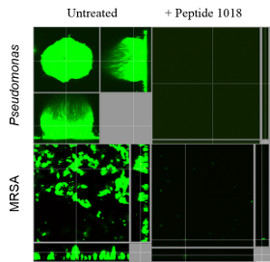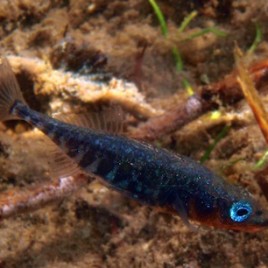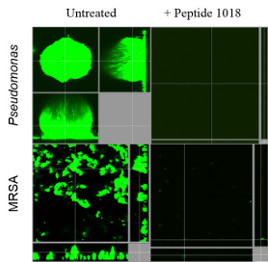
These flow cell images show that biofilms of Pseudomonas aeruginosa and methicillin-resistant staphylococcus aureus can’t form in the presence of the anti-biofilm small protein 1018. (Credit: César de la Fuente-Núñez)
Researchers have discovered that a synthetic protein is capable of breaking up the slimy films that harmful bacteria use to stick themselves to human tissues. The protein molecule is called “1018” and is modelled after proteins produced by the human immune system.
A new study shows the molecule prevented biofilm growth in E. Coli, Salmonella and several other disease-causing organisms. The finding offers a new strategy to combat these infectious bacteria, which are increasingly becoming resistant to antibiotics.
Original research paper published in the the journal PLOS Pathogens on May 22, 2014.
Names and affiliations of selected authors


